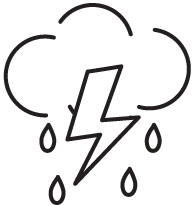How to Choose the Best Roofing Contractor

Want to hire an over-the-top roofer? When you’re ready to fix your roof problems – from the rain dripping into your kitchen to the ice dam that caused a leaking roof and stains on your living room ceiling – where do you start? Asking well-thought questions and checking the roofer’s credentials and skills will, most likely, end with an over-the-top job.
What are the initial requirements I should look for when choosing a roofer?
-
- The roofer is licensed. The roofer, not the customer, should apply for and keep charge of the building permit too. A permit requires the work to be inspected and, often, photographed. If the roofer does the job wrong, you can report the mess-up to the state license bureau. But if the roofer isn’t licensed, you are out of luck.
- The roofer has plenty of experience. You want your roof installed right. You will avoid many headaches, from leaks and mold damage to sagging roofs or critters finding entry through poor installation. In addition, if a less experienced roofer doesn’t follow the manufacturer’s directions, the materials supplier won’t honor the warranty. Look closely at the years of experience each roofer has.
- The roof has excellent reviews. Reviews go along with experience. Not only should you see glowing reviews about the business, but also a few indicating problems. Everyone makes mistakes. Other issues occur when there is a misunderstanding. What matters is how the company responds to unfavorable reviews. Negative reviews should be considered carefully and not taken too seriously, assuming they are handled well and there are numerous other positive reviews.
Once you have narrowed your search by checking the initial requirements, its time set up a sales call with the top roofers on your list.
Eight Questions to ask a roofing company during the sales call
What type of communication should I expect from the roofing company?
 Communication is key: You, the customer, should set up strong lines of communication with the contractor. Some customers might expect more communication than the contractor generally provides, or desire so much communication that the process considerably slows the project down. Discuss communication expectations ahead of time, at the sales call. You will avoid misunderstandings and make for a smooth-running project with the contractor’s communication style that best matches your expectations.
Communication is key: You, the customer, should set up strong lines of communication with the contractor. Some customers might expect more communication than the contractor generally provides, or desire so much communication that the process considerably slows the project down. Discuss communication expectations ahead of time, at the sales call. You will avoid misunderstandings and make for a smooth-running project with the contractor’s communication style that best matches your expectations.
It is also important to sense the level of pushiness in your salesperson. That old-school tactic is still around. If you plan to interview three roofers, it isn’t logical to choose the first one because they pushed you into it. Stick with your plan. If you feel pushed at this point, you stand the chance of making a poor decision after doing all your research. Pushing you at the sale can mean ‘pushing you out of their mind’ should you have an issue too.
What happens if it rains or storms during my roof installation?
 It’s All in the Planning: A good roofer keeps close check on the weather and makes a note of changing forecasts. If the roofer learns that rain is coming, he/she must make sure the crew takes off only enough of the roof that it can be replaced before the rain starts.
It’s All in the Planning: A good roofer keeps close check on the weather and makes a note of changing forecasts. If the roofer learns that rain is coming, he/she must make sure the crew takes off only enough of the roof that it can be replaced before the rain starts.
If the roofer covers the unfinished roof with a tarpaulin during a rainstorm, it needs to be tied and nailed down or it might blow away. Having a good tarp doesn’t mean the roof would keep dry throughout the rain, but it minimizes the degree of moisture.
Discuss weather concerns with your prospects and ensure you feel comfortable with the way they handle unexpected weather.
Should my old shingles always be removed before installing new ones?
Today’s roofers should not put a new roof over the existing roof as it is. Membranes – a waterproof or water-resistant barrier installed directly to your roof deck before the actual roof material is installed – are better than ever nowadays. They can last 50 years. But if the crew doesn’t follow the manufacturer’s directions and take the old shingles off before laying down the new membrane, the membrane manufacturer won’t honor the warranty. This is a big issue. Be sure to ask!
What should I know about shingle warranties?
 It’s important for the roofer to understand the warranties for the shingles they purchase on your behalf. Manufacturing defects are rare. Most of the shingle problems that plague customers after the roof is finished are caused by human error. The top-notch roofer will install them properly so the warranty is in full effect. Ask about roofing material warranties and also what can void them.
It’s important for the roofer to understand the warranties for the shingles they purchase on your behalf. Manufacturing defects are rare. Most of the shingle problems that plague customers after the roof is finished are caused by human error. The top-notch roofer will install them properly so the warranty is in full effect. Ask about roofing material warranties and also what can void them.
What are you planning for my roof ventilation?
Roofs Need Ventilation: Poor ventilation inside the roof could damage the attic and floor boards. This can cause serious issues, such as a sagging roof or mold growth inside the roof. The salesperson should discuss ventilation for your roof and ensure proper airflow for your home.
Are there specific things you do when applying blown-in insulation?
There’s a big mistake that often happens with blown-in insulation: There needs to be a wall in the bottom to make sure the foam doesn’t go into your soffit. Blocking the soffit will block airflow and cause poor ventilation. A good roofer will point this out and ensure proper application, or advise you that there already is a problem caused by someone who installed the insulation earlier.
What cleanup do you perform after my roof is installed?
 Cleanup is important: Make sure the contractor thoroughly cleans the work site. Some 10,000 nails go into the average roof job and, even if 90 percent of the old nails are picked up, that means 1,000 nails remain on the ground. While finding every single nail may not be possible, leaving all of them there means that much more work for you, and possible injury from you or someone on your property stepping on a nail.
Cleanup is important: Make sure the contractor thoroughly cleans the work site. Some 10,000 nails go into the average roof job and, even if 90 percent of the old nails are picked up, that means 1,000 nails remain on the ground. While finding every single nail may not be possible, leaving all of them there means that much more work for you, and possible injury from you or someone on your property stepping on a nail.
What if I have an issue after the roofing job is complete?
Good roofing contractors are understanding and eager to resolve the issue if a problem develops after the job has been completed. But how do you know if this is the case before you hire a roofer? Here is where reviews matter. Online reviews, or referrals from others you know, will give you a good idea about how eager a roofing company responds to customers after the project is complete.
A new roof isn’t a simple thing. It’s bound up with layers of protection and varying materials and a good deal of brain work – including planning and keeping tabs on weather. Know about and pay close attention to details. Hire the right contractor that uses good, reliable materials. Armed with information, your roof stands an excellent chance of lasting 30 to 50 years.
The post How to Choose the Best Roofing Contractor appeared first on Melvin Belk Roofing.

